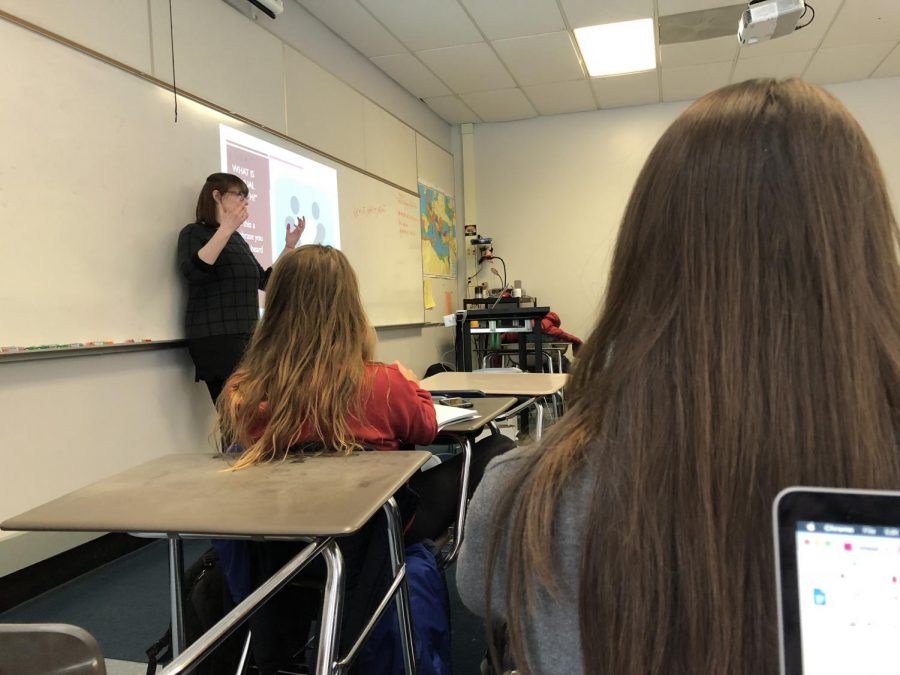Harley Dutcher Presents to CHS
Harley Dutcher grew up in a rural town in Northern Michigan. She didn’t have the best sexual education, and didn’t even know about careers in Women’s Health. She started out at a community college then transferred to the University of Michigan her Junior year. Originally, she wanted to be a dentist; she loved teeth and everything about them. It wasn’t until she took Women’s Studies 240 that she found her true passion: women’s health and research.
On Tuesday, April 17, 2018 dutcher presented to Community High Schools Advanced Health and Prevention Theatre class. She asked the class to be researchers. She wanted them to see a different side of these topics. The goal for the presentation was defining research and sexual health, giving three examples of sexual health research, and looking at careers in sexual health research.
To get the class engaged, she asked them what they think research is and what they think sexual health is. After getting a few responses, she defines both and gives the World Health Organization of exual Health. She flips the slideshow and a picture of two peeled orange slices appear next to each other. After a few moments of silence, she asks the class “what do you think this looks like?” A few more moments of silence pass, and a student answers, “a vagina.” This segues into her second goal for the day: 3 examples of sexual health research. She starts off by talking about sexual related body image. Dutcher and the class discuss vulva stereotypes, porn stereotypes, vaginal cleaning, and more. The next slide she shows holds a picture of Gwyneth Paltrow’s Goop and talks about a new phenomenon, vaginal steaming and why women choose to do it.
“Women’s bodies are not the problem. There’s a lot of problems with the world, but women’s bodies are not one of them,” Dutcher said. She believes there is no reason for any treatments to make your vagina look ‘better’, since vaginas clean themselves naturally.
Her next example of sexual health research is sexual satisfaction research. After asking the class what they think it is, Sabina Fall gives her input.
“I think Sexual Satisfaction can be defined in a lot of ways. Some people may say it’s an orgasm for them but other people may say holding hands,” Fall said. Dutcher agrees, and provides a few more definitions, her favorite being, “does reality match one’s expectation?” She passes out a piece of paper with directions on the top. The sheet of paper is an interactive sexual satisfaction grading scale. Basically, one is supposed to rate their overall sexual satisfaction and describe what it means to them. Dutcher says tells the students that they don’t need to fill it out now, but can later. This scale is used in a lot of researches. Dutcher and the class discuss sexual satisfaction, what type of person is most satisfied, and more.
Her next and final example of sexual health research is, her own, sexual safety research. Again, she starts off by asking the class what their definition of it is. They discuss her research question, which is what efforts do young women’s undertake to protect themselves in their sexual relationship with men, and her findings.
She finishes her presentation right as the class period ends with examples of different careers in sexual health research. She thanks the class and offers her time to answer questions after the class.








